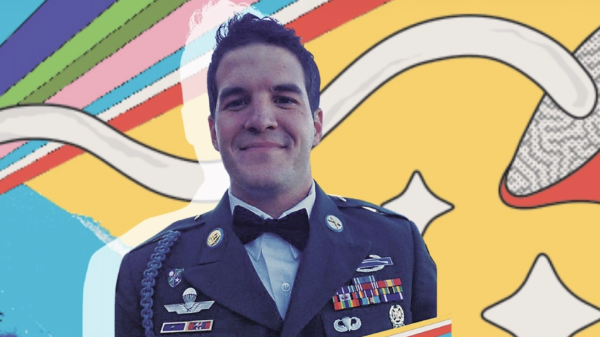More than ever, Canadians want to use psychedelics as medicine to relieve severe mental distress, but after a promising stretch of granted exemptions, regulator Health Canada appears to be stalling the process.
As applications from patients to use psilocybin pile up, their requests are being neglected, advocates say.
And legal experts think patients are entitled to a reply, and are working alongside advocates to compel the government to give answers and provide access to treatment otherwise prohibited by drug laws.
“The mandate of Health Canada should not be to oppress patients to make them feel judged for using a medicine,” says Spencer Hawkswell, CEO of advocacy group TheraPsil. “It should be to help them safely do it.”
TheraPsil is a Victoria-based non-profit organization that helps people legally access psilocybin for treatment. The organization is asking Minister of Health Patty Hajdu to develop regulations for using psilocybin medically, and to provide a legal source.
So far, the organization has helped 34 patients and 19 healthcare professionals across Canada receive exemptions via section 56 of the Controlled Drugs and Substances Act.
Read more: Canada’s first set of approved health workers begin psilocybin therapy training
Read more: Canada grants terminal patients access to psilocybin therapy
TheraPsil has supported people like Jim Daswell, who suffers from cancer, anxiety, depression and PTSD, but doesn’t qualify for end-of-life treatment.

Thomas Hartle (left), the first Canadian to legally undergo psilocybin therapy on Aug. 12, 2020, with therapist and TheraPsil founder Dr. Bruce Tobin. Photo via TheraPsil
Daswell has been waiting months to hear back from Health Canada.
“And the current approach that the government is taking towards us is — I think — unfair, and that people who have cancers in remission, severe anxiety or severe depression, live every day with a sword of Damocles hanging over their heads,” Daswell said during a TheraPsil webinar this week.
To deprive people of a known cure, which is safe when done in a proper medical or clinical environment is an amazing unfairness, he says.
Lawyers demand exemptions and regulations for psilocybin
Toronto-based lawyer Paul Lewin was retained by TheraPsil to threaten legal action on the behalf of patients. He wrote a letter demanding Hajdu grant exemptions to applicants awaiting approval, and to commit to psilocybin regulations without delay.
“I have been directed to start bringing court proceedings which will include mandamus applications and, soon after, an application challenging the constitutionality of the CDSA (probably also the Food and Drugs Act R.S.C., 1985, c. F-27 and Food and Drug Regulations C.R.C., c. 870 (“FDRs”)) if the s. 56 exemption applications supported by TheraPsil are not granted within 14 days and the government does not move towards reasonable regulation,” reads the letter.
Nicholas Pope is an Ottawa-based human rights lawyer who recently applied for a mandamus for a patient who hasn’t heard back from the Minister since March.
A mandamus is an order from a superior court that compels a public authority to perform an action required by law, in this case to provide a yes or no response to a patient application.
Therapsil launches second awareness campaign
The first four exemptions to use psilocybin in a medical setting were given last August.
“It wasn’t just by chance that [patients] got access — we actually launched a massive campaign, similar to what we’re going to be launching this year,” Hawkswell says.
For 100 days, TheraPsil gathered letters in support of psilocybin therapy, surveyed the public and recorded 100 videos of patients in need and people who had already used the illicit substance as medicine.

Canadian medical professionals are being trained in psilocybin-assisted therapy. Photo via TheraPsil
The survey showed 66 per cent of Canadians support changing regulations to make psilocybin available medically.
On Monday, the organization launched its second campaign, called Legalize Therapeutic Psilocybin – The Push for Medical Regulations, which aims to create awareness. The campaign hosts weekly webinars featuring patients, panelists, healthcare providers and other TheraPsil team members.
Read more: Psilocybin restores brain areas damaged by depression, study shows
Read more: Positions of NIH, FDA signal we’re ‘on the brink of a psychedelic revolution’
Despite some seemingly qualified patients waiting months with no reply, others are getting approvals, leaving them and advocates wondering why some get through and not others.
Hawkswell says he asked Health Canada for an explanation but didn’t get an answer.
“They always give the same response, that every application is dealt with on a case-by-case basis,” he says. “My fear is that there is a bureaucrat or politician making a decision on who gets access and who doesn’t.”
I am the first person with ALS in Canada to be granted an exemption for psilocybin therapy @TheraPsil #als #endoflifetherapy https://t.co/Bi1beB6RKp
— Sara McDonald (@saramcdonald881) July 28, 2021
Patients deserve to know why they are getting access or not, Hawkswell argues.
TheraPsil is currently helping 16 patients waiting for response and about 40 healthcare practitioners seeking access for training.
“But I do know that there are other people in Canada who have also applied for section 56 exemptions with other organizations or by themselves, and that there are hundreds and hundreds of applications.”
Some patients that reach out to TheraPsil have been using psilocybin for years to treat cluster headaches, but they don’t want to do it illegally anymore.
“And they’re not afraid of getting arrested or for the law so much as they’re afraid of the taboo of what their employers think, what their doctors might think.”
Follow Natalia Buendia Calvillo on Twitter
natalia@mugglehead.com















Catherine
June 9, 2025 at 8:28 pm
When I was diagnosed with ALS, I felt like my life had been placed on a countdown. The weakness, slurred speech, and muscle loss progressed quickly. I found VineHealth Clinic’s herbal ALS/MND program during one of my lowest points, and it changed everything. Within few weeks, I noticed more strength in my limbs, clearer speech, and a feeling of stability I didn’t have in months. This herbal treatment program gave me back control and hope for the future. Visit vinehealthcenter. com